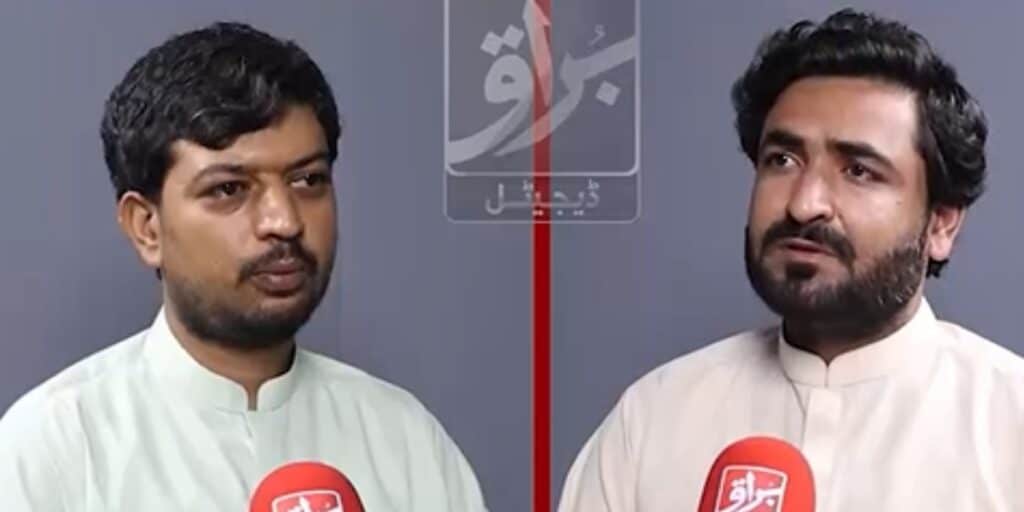QUETTA: Political analyst Farid Bugti strongly criticized India for its open interference in Pakistan, particularly in Balochistan.
He stated that India is openly claiming responsibility for creating unrest within Pakistan, while its media and online platforms push propaganda, portraying Balochistan as a region where people allegedly need passports to move around.
Bugti reminded viewers that Ajit Doval, India’s National Security Advisor, has publicly admitted on state television that India supports groups like the TTP and BLA.
According to Bugti, the Indian state is implementing its “Akhand Bharat” ideology, which aims to absorb not just Balochistan but the entire Pakistan—even Bangladesh and other nations—into one united Hindu state.
Bugti posed a thought-provoking question to fellow Baloch: Are we aligned with the Islamic ideology or with India’s expansionist Hindu narrative?
He emphasized that, as a proud Baloch, he could never tolerate any foreign ideology, especially Hindutva, being imposed on his homeland.
He challenged intellectuals who align themselves with anti-state narratives, questioning whether they are prepared to become servants of Hindutva and participate in temple worship.
He alleged that India’s investment in Balochistan is not for development but for spreading Hinduism.
He argued that those involved in destabilizing Balochistan have no connection to Islam, asking whether they intend to convert their women and children to Hinduism.
Bugti pointed out that no other religion—whether Buddhism, Christianity, or Judaism—is being promoted in the region, only Hindu culture.
He reminded listeners that historically, when Islam emerged, the Baloch people embraced it wholeheartedly. Islam, not Hinduism, shaped their identity.
He warned that if current trends continue, history might record Balochistan as a land where Hinduism was cultivated with Baloch blood.
He also condemned the recent wave of targeted killings of Baloch people—seven to eight shot dead in just one week, including members of the Shahwani tribe.
Bugti asked why there was no outrage, no protest, and no mourning tents for these victims.
He accused nationalist leaders like Akhtar Mengal, Mama Qadeer, and Maulana Hidayat-ur-Rehman of selective activism, calling out their silence over these Baloch deaths while loudly advocating for others.
He urged them to at least pick up the bodies and register their protest, even if they falsely blame the military.
Bugti continued his criticism, questioning why only a handful of Baloch deaths get media attention, while countless others die in silence.
“Are these forgotten Baloch from another planet?” he asked. He accused nationalist voices of dividing even bloodlines and warned against such double standards in the name of nationalism.
He likened this selective concern to a disease that targets only specific parts of the body.
Addressing pro-BLA and BYC YouTubers and bloggers from Punjab, Bugti sarcastically suggested that if their romanticism for insurgents has run its course after the Zhob incident, they should now come and collect the corpses.
Commenting on Dr. Allah Nazar’s plea to India for weapons, Bugti said this plea reflects their weakness in manpower and resources.
He questioned how such groups could claim Baloch pride and honor while begging India for support.
“Where is your dignity and independence now?” he asked. He stressed that if their agenda is different from the mainstream Baloch identity, then their motives must also be separate—and they are clear to everyone.
He concluded by recalling the example of rebel-turned-patriots like Shambay Imam, who once had a revered reputation, but after surrendering, admitted the entire separatist narrative was built on lies.
ALSO READ: Balochistan is a global chessboard now: Abdullah
Others like Khair Bakhsh Marri and Sarfraz Mengal also eventually accepted the Pakistani flag. Bugti stressed that their return to the national fold was a significant admission that the separatist cause was a





